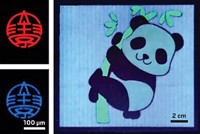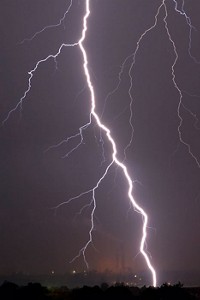Advertisement
Grab your lab coat. Let's get started
Welcome!
Welcome!
Create an account below to get 6 C&EN articles per month, receive newsletters and more - all free.
It seems this is your first time logging in online. Please enter the following information to continue.
As an ACS member you automatically get access to this site. All we need is few more details to create your reading experience.
Not you? Sign in with a different account.
Not you? Sign in with a different account.
ERROR 1
ERROR 1
ERROR 2
ERROR 2
ERROR 2
ERROR 2
ERROR 2
Password and Confirm password must match.
If you have an ACS member number, please enter it here so we can link this account to your membership. (optional)
ERROR 2
ACS values your privacy. By submitting your information, you are gaining access to C&EN and subscribing to our weekly newsletter. We use the information you provide to make your reading experience better, and we will never sell your data to third party members.
Analytical Chemistry
Tracking Nuclear Decay Atom-By-Atom
Nuclear Chemistry: Method for observing transmutation suggests approach to improving cancer therapy
by Mitch Jacoby
June 22, 2015
| A version of this story appeared in
Volume 93, Issue 25
Waiting for a specific atom of a radioactive element to undergo nuclear transmutation could be futile because those events happen randomly. Yet a research team led by Tufts University chemist E. Charles H. Sykes has observed individual atoms of 125I transmuting to 125Te (Nat. Mater. 2015, DOI: 10.1038/nmat4323). The study deepens understanding of electron emission processes and may lead to new ways to study the effects of ionizing radiation on biological tissues and new approaches to cancer therapy. To observe the nuclear events, the team prepared monolayer films of radioactive 125I on gold-coated mica. By analyzing the films for months with X-ray photoelectron spectroscopy and scanning tunneling microscopy, the team observed the initially tellurium-free samples become enriched in tellurium and observed the telltale signs of individual iodine atoms undergoing nuclear decay. The researchers note that as 125I atoms decay, they emit electrons that stimulate emission of many additional low-energy electrons that are reflected from the gold surface. By binding 125I to gold nanoparticles and attaching the particles to antibodies or other compounds that target tumors, these low-energy electrons, which effectively rupture cancer cells’ DNA, could improve the efficacy of cancer therapies, the team suggests.





Join the conversation
Contact the reporter
Submit a Letter to the Editor for publication
Engage with us on Twitter